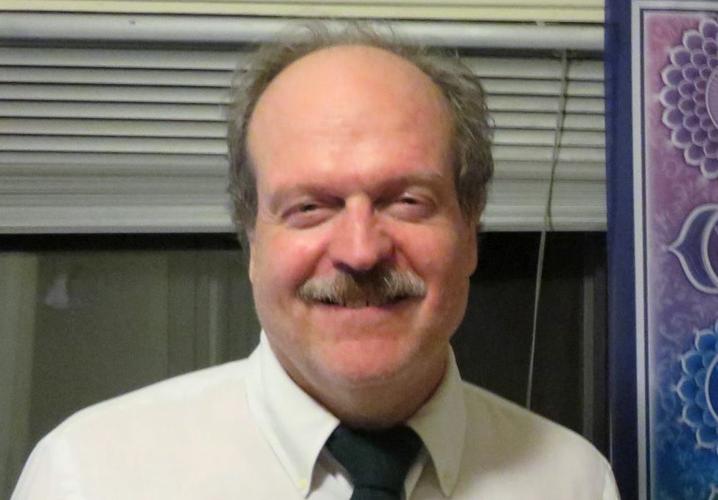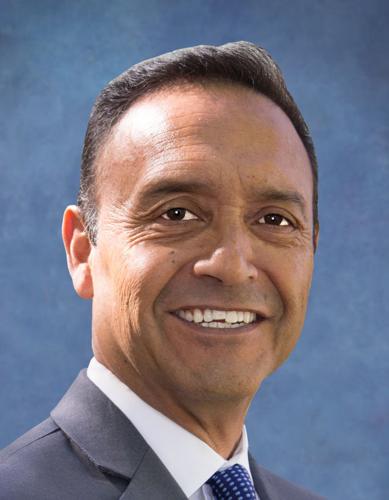Roughly eight years ago, Tucson voters backed then-Republican Steve Kozachik on a platform to make changes inside City Hall.
Elected at a time when the country backed Barack Obama over John McCain for president, Kozachik was an outlier in city politics as a social liberal and fiscal conservative and was the only Republican on the Tucson City Council in 2008. He would break away from the GOP in 2013, becoming a Democrat.
Now there is a new Republican, architect Mariano Rodriguez, who is running against Kozachik in the Nov. 7 city ward elections, but who also brands himself as an outsider seeking reforms inside city government.
A third candidate, Green Party member Mike Cease, has a similar message — saying he also wants to shake things up.
The general election allows Tucson voters citywide to decide the winner in each of the wards. There are three wards up for a vote, but only Ward 6 and Ward 3 are contested. Ballots will be mailed next week for the largely mail-in election.
On paper, Democrats have the advantage regarding political registration. While outnumbering Republicans nearly 2 to 1, registered Democrats inside the city limits also outnumber so-called registered independents, those who don’t state a party preference, 107,000 voters to 74,000.
Both Kozachik and Rodriguez have, at one time or another, broken away from Republican politics.
In 2013, Kozachik told the Star he left the Republican Party because it had “lurched too far to the right” in recent years.
“This party, whether it’s on immigration, women’s reproductive rights or the whole social panoply of issues ... is just out of touch with this community,” said Kozachik.
Rodriguez said he left the Republican Party in 2014, becoming an independent.
“At that time, the way that the Republican Party was it had a lot of complex stuff that was coming up that I didn’t exactly agree with. So I just decided to go middle of the road,” he said.
He said he has always been a conservative and rejoined the party last year.
Rodriguez has gained some international attention for his support for Donald Trump, several months before he was elected president.
After a profile in the Star, he was regularly interviewed by CNN and other national and international media.
Cease said he has been a loyal member of the Green Party for years.
It’s the economy, stupid
Rodriguez says he has heard the same complaint over and over again on the campaign trail — that there is no accountability inside city hall or on the council.
“The roads are a prime example. I’ve been telling people, you know I’ve been here for 30 years and we’ve pretty much had the same problems all along,” he said. “The city has been promising and promising to fix this stuff and they don’t see anything.”
He worries that the seven Democrats on the council are making decisions emotionally rather than logically.
“I think a lot of the stuff that they do is perceived more or less with the heart instead of actually thinking about the overall shape we are in,” Rodriguez said.
Rodriguez said he can work across the aisle, although he admits it will be an uphill battle at times.
“Some of these people are focusing more on national politics in their newsletters and stuff like that and trying to report on what’s going on nationally — which doesn’t affect us for while,” he said. “We have to start from the bottom up and actually think about what’s best for our city and how can we solve our problems.”
For Kozachik, who is well-known for dragging his budget books into meetings, the issue continues to be the financial health of the city.
For the last two years, the council has boasted of structurally balanced budget, but Kozachik isn’t satisfied that the city is prepared for unforeseen issues.
“We’ve pretty well maintained services throughout the community, what we haven’t done well is ... built up a contingency fund,” Kozachik said. “Tucson Water has no capital reserve to speak of, so we have to build up those contingencies.”
It gets worse for the city itself.
“Our contingency was $225,000. That’s ridiculous,” he said. “That is for the city. That is one HVAC unit in one city building.”
The problem, he says, is the city still has a large pension obligation that was made even worse by two recent unfavorable court decisions.
“Someone else writes the rules and we write the checks,” Kozachik said.
The council could have opted for a new pension repayment schedule like South Tucson did to make things easier, he admits, but that would be just kicking the can down the road.
“We have got to rip the Band-Aid off and say ‘we’ve got to deal with this,’ because it’s not going to go away. You can’t keep paying the minimum payment on the credit card and expect to get out of the hole,” he said.
For Cease, he sees two issues facing the city — income inequality and environmental sustainability.
“We believe that those are not separate issues, those are directly connected,” Cease said.
Cease proposes a solution to both, what he calls the “green new deal for Tucson.”
He wants the city to start a revolving fund to offer low-interest loans to residents to make their homes more energy-efficient as well as compatible with solar panels.
“We’re going to create local fair-wage jobs to retrofit thousands of homes and businesses with energy conservation and solar energy and water harvesting,” Cease said.
Cease argues there is more direct way to help boost Tucson’s economy — increasing the minimum wage to $15 an hour.
“Study after study has shown that that’s the single most important thing you can do to improve the economy for all,” Cease said.
Hire more police officers, say two
Cease argues that the focus shouldn’t be whether the city is meeting a national standard when it comes to the number of officers patrolling the street.
“In a way that is the wrong question,” he said. “I’m not saying staffing isn’t an important issue. I think there are larger issues than, you know, how many people do we hire. I think we need to ask what is the mission for each department and not just for public safety.”
For Kozachik, the city is working to recruit new officers but he is concerned the city would have to lower standards to hire enough new officers.
“Recruiting for law enforcement right now is a tough sell. We will go through 750 to 1,000 applicants to get an academy of qualified people,” he said.
“I’m not inclined to lower our standards so that we wind up with a situation like in some other parts of the country where you have bad actors out there carrying guns and throwing their weight around.”
Kozachik says complaints that Tucson police officers have not gotten raises in the last 10 years is an urban myth that is being repeated by his political enemies.
“We gave them a pay increase in 2013. I happen to know because I voted against it and they (police officers’ union) pulled their endorsement (of him),” Kozachik said. “I voted against it because we were still in a $20 million deficit situation.”
Rodriguez says the city should hire more than 300 new officers to meet national standards.
“Statistics-wise we’re supposed to have 1,200,” he said.
Rodriguez says the city continues to lose trained police officers to other jurisdiction for a number of reasons, including pay.
He supports pay raises as well, saying it’s a small price to pay when comparing it to the cost of training new officers.
In terms of the cost to hire new officers as well as give existing officers pay raises, Rodriguez says the solution to him is simple — a refocus on core services.
Economic development comes in different forms
Kozachik says offering tax incentives to attract new businesses has been a good strategy for the city but cautioned that it needs to be done on a project-by-project basis.
“Every project rises and falls on its own merits,” he said.
He offered two areas he said could help revitalize the area’s economy.
One is the proposed creation of a highway, to be known as the Sonoran Corridor, that would connect Interstates 10 and 19 south of Tucson International Airport, and the second is an expansion of incentives to bring more film projects here.
Kozachik said the state does offer some movie-making incentives, but said Tucson is in a unique situation to offer more than just a backdrop for Western films.
“What we offer is a location: You can bring your crew into downtown and get an urban setting, and in 30 minutes you are in the Sonoran Desert. And in 30 minutes in the other direction you’re up on top of a mountain with evergreens,” he said.
Incentives are good, Rodriguez said, but he wants to see them go to local businesses whenever possible and that there should be a “good return on investment by the city.”
“We can’t just be offering incentives just to attract businesses here,” he said. “Primarily because we have a lot of struggling businesses here that also need help.”
A platform Cease has mentioned at debates is for the city to help foster the green economy by promoting water harvesting and energy conservation.
He also does not believe in incentives to bring in new businesses.
“Bringing in outside firms and recruiting them and offer them subsidies has largely failed us,” he said, adding that companies come for the incentives but then “more or less exploit us” by paying low wages and polluting the local environment.







